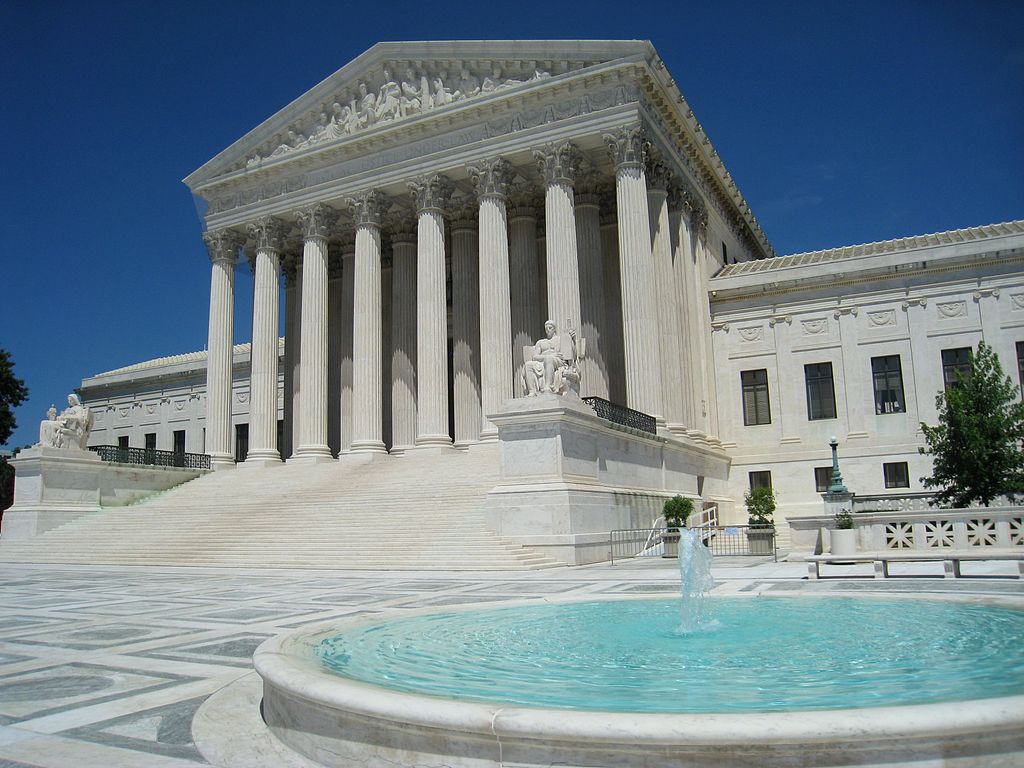Should the Federal Government Keep its Word?
The Supreme Court says yes, except Justice Alito, who sees things differently.
Last November, a Data Wonk column asked, Can Government Break Its Promises? Based on a decision from an obscure federal appeals court, the column concluded that the answer was yes. In late April, the US Supreme Court disagreed.
This dispute arose from provisions in the Affordable Care Act (Obamacare) to establish exchanges on which people could purchase health insurance regardless of how healthy or unhealthy they are. To attract insurers to the exchanges, and encourage them to keep premiums low, the act established a risk-sharing program. So-called “Risk Corridors” were designed to protect insurers against the danger of attracting an unusually unhealthy group of enrollees.
Under the risk corridor program, insurers whose enrollees were healthier than expected—and therefore less costly–would pay a portion of their savings into a pool. The pool, in turn, would be used to share the extra cost of those insurers whose members were less healthy—and therefore more expensive—than projected. While it was hoped that the program would be revenue neutral, with inflows balancing outflows, the law committed the government to make up a portion of net losses (and receive a portion of net profits).
The Risk Corridors program ran a deficit in each of the three years totaling more than $12 billion. A major factor in this deficit was the Obama administration’s decision to allow people to continue buying cheaper insurance that did not meet the ACA standards. This “transitional policy” had the effect of keeping some healthy people off the exchanges, raising the cost of benefits on the exchanges.
Meanwhile, the Risk Corridors program—and the insurers depending upon it–fell victim to partisan politics. The 2010 election brought a Republican majority to the House of Representatives that was hostile to Obamacare and committed to its repeal. Failing to repeal Obamacare or the Risk Corridors outright, at the end of each year the House added a rider to appropriations bills for the Centers for Medicare and Medicaid Services (CMS) which prohibited using the funds for Risk Corridors payments.
The predictable result was a bloodbath among smaller insurers who participated in the exchanges. A number of the very largest insurers withdrew from the exchanges. The effect was particularly devastating among the co-ops, many of which had recently started and didn’t have the resources to cover the losses. Of the 24 co-ops at the peak, only four survive today—in Maine, New Mexico, Montana/Wyoming, and Wisconsin (Common Ground Healthcare Cooperative).
Maine Community Health Options, one of the surviving co-ops brought a lawsuit in the United States Court of Federal Claims against the US government. Two other suits were also brought by other insurers, with mixed results—two rulings for the government, one for the insurer. All three were then appealed to the United States Court of Appeals for the Federal Circuit.
A report in Health Affairs listed the central questions as:
1) whether the government had an obligation to make payments to private partners (in this case, insurers); 2) whether this obligation could be set aside by Congress retroactively (after those private partners agreed to the terms); and 3) whether Congress could set aside those obligations through the appropriations process, without amending the underlying statutory obligation to make the payments in the first place.
A three-judge panel ruled against the insurance plans. One of the three members, Judge Pauline Newman, a Ronald Reagan appointee, dissented, warning that the majority’s decision would “undermine the reliability of dealings with the government.”
A petition for rehearing by the full court (“en banc”) was rejected by a vote of 9-2. The two judges voting in dissent were Newman and Evan Wallach. (Oddly, five of the judges voting to reject the petition were Barack Obama appointees.) Judge Newman (joined by Wallach) wrote:
… the insurers, who had performed their part of the bargain, were denied the promised compensation. My colleagues now ratify that denial. This is a question of the integrity of government.
Judge Wallach, the sixth Obama appointee, also wrote a dissent (which was joined by Judge Newman).
The appeals court decision was appealed to the US Supreme Court. In late April of this year, the court issued its decision. By a vote of 8 to 1, the court ruled against the government. Justice Sonia Sotomayor wrote the opinion which was joined by Chief Justice John Roberts and Justices Ruth Bader Ginsburg, Stephen Breyer, Elena Kagan, and Brett M. Kavanaugh. Justices Clarence Thomas and Gorsuch also joined most of the decision.
These holdings reflect a principle as old as the Nation itself: The Government should honor its obligations. Soon after ratification, Alexander Hamilton stressed this insight as a cornerstone of fiscal policy. “States,” he wrote, “who observe their engagements . . . are respected and trusted: while the reverse is the fate of those . . . who pursue an opposite conduct.”
Justice Alito wrote the only dissenting opinion:
Today, however, the Court infers a private right of action that has the effect of providing a massive bailout for insurance companies that took a calculated risk and lost. These companies chose to participate in an Affordable Care Act program that they thought would be profitable.
In his dissent, Alito echoes an amicus brief from Charles Koch’s Americans for Prosperity:
What the insurance companies really want is a bailout for their bad decisions. They tried to reap guaranteed profit from a risky industry by participating in a poorly designed government program. It did not work, and Congress decided not to issue a bailout.
The “bad decision” or “calculated risk” they reference was to trust the government to honor its promises.
What happens next? The cases go back to the Court of Federal Claims, which will issue a judgment for each insurer, including at least 116 others which joined a class action lawsuit led by Wisconsin’s Common Ground Healthcare Cooperative.
It is likely that much of the estimated $12.2 billion owed will eventually end up with the policyholders, particularly if their insurer survived and returned to prosperity. A provision of the ACA requires that insurers in the individual market spend 80% of their premium revenue on health care claims. If they spend too little of their premium revenue on health care claims or quality improvement, they must rebate the difference to their enrollees.
In other cases, enrollees may see little or nothing of the payment. For example, particularly with insurers that went out of business, it may all go to creditors. In other cases, desperate insurers sold their rights to any payment to a hedge fund in exchange for immediate cash.
Alexander Hamilton was right—that Government should honor its commitments. It is reassuring, I think, that a majority of the justices agree. It would have been better, however, if this principle had been honored when the government’s obligation was first incurred.
Data Wonk
-
Life Expectancy in Wisconsin vs. Other States
 Dec 10th, 2025 by Bruce Thompson
Dec 10th, 2025 by Bruce Thompson
-
How Republicans Opened the Door To Redistricting
 Nov 26th, 2025 by Bruce Thompson
Nov 26th, 2025 by Bruce Thompson
-
The Connection Between Life Expectancy, Poverty and Partisanship
 Nov 21st, 2025 by Bruce Thompson
Nov 21st, 2025 by Bruce Thompson






















